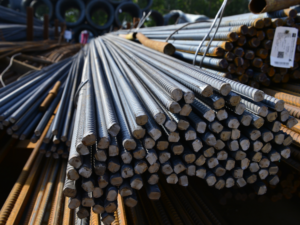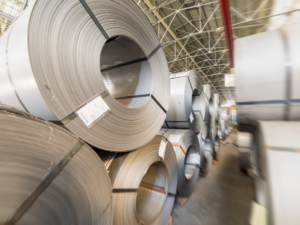Soaring energy prices and borrowing costs in Europe are quickly eroding metal scrap processors’ margins, with the Bureau of International Recycling (BIR) now focusing on quantifying the impact and negotiating solutions with national associations.
“For instance, we spoke to a scrap processor today, who is now paying €80,000 ($77,755) per month for their energy bill, and that will rise to €400,000 euros next year, but some other company will tell us different figures, like an increase of two to three times. There is much information to verify before we can address the issue on an industry level,” Tom Bird, the president of BIR, said at the industry body’s Dubai conference on Sunday October 16.
A major recycler source told Fastmarkets that although his energy supply was based on a long-term contract, internal discussions were ongoing about the value of shredding material versus shearing scrap and sending it to the consumer for further cleaning and processing. Two other major recyclers based in Europe told Fastmarkets that higher demand for shredded scrap in India had increased the volume of ferrous scrap they were selling in containers over recent months.
For energy-intensive aluminium, it is estimated that 50% of the European Union’s aluminium production has already been forced offline by soaring power costs following Russia’s invasion of Ukraine in February.
While there has already been a slash in primary smelter output, this trend is spilling over to aluminium scrap processors and secondary production, which are perceived to consume less energy.
It also posed a threat to downstream activity, including remelting of aluminium scrap, with recyclers such as Speira also curtailing production.
Shredder output has suffered in Europe and the United Kingdom over the last few months, sources said, amid a combination of high energy cost and a lack of available shredder feed. UK scrap processors are “fighting” over limited tonnages of shredder feed to consume amid a looming recessionary environment across the European landmass.
Fastmarkets’ weekly price assessment for steel scrap 5C, loose old light, domestic, delivered inter-merchant UK was £185-205 ($207-229) per tonne on Friday October 14, unchanged week on week.
“Even in normal times, energy costs already take up a bulk of shredders’ operating costs, and a four-to-five times increment would definitely make operation unfeasible,” Bird said.
He said that the BIR was currently collaborating with regional scrap bodies such as the British Metals Recycling Association (BMRA) to collect information from member companies.
Inflationary pressures hit consumers
Addressing cost increases across different regions in Europe at ‘The Challenge’ session of the BIR event on Monday October 17, panelists said that it was not only energy, but inflation that had also made operations and financing of the scrap industry more difficult.
“We have to perform due diligence all the time, constantly recalculating what you are doing,” Murat Bayram, director of EMR European Metal Recycling GmbH said, citing the difficulty of factoring in inflation costs into individual scrap business.
It is even harder in countries such as Turkey where industry participants said the real inflation could be even higher than the official number, Bayram said. The Turkish government said September inflation was at a 24-year high of more than 83%.
Turkey is the world’s biggest ferrous scrap importer. But Turkish mills’ interest in overseas scrap cargoes has been weak recently amid higher operational costs.
Market sources told Fastmarkets earlier this month that the break-even level for the spread on fob rebar to cfr heavy melting scrap 1&2 (80:20) for a typical Turkish steelmaker buying energy from the spot market was around $335-350 per tonne, effective from new energy hikes on September 1.
This is up from $300 per tonne previously. In 2019, the break-even level was typically understood to be around $160 per tonne.
Fastmarkets’ price assessment for steel scrap HMS 1&2 (80:20 mix) North Europe origin, cfr Turkey was at $365 per tonne on October 14, down by 19% since the beginning of the year.
The depreciation of the Turkish lira has been more dramatic than other major steel scrap importers, and has therefore been a significant factor reducing Turkey’s buying power in the market.
On October 16, the lira had depreciated against the US dollar by 50.4% from a year earlier, according to Oanda. In contrast, the Indian rupee has lost 9% over the same period while the Bangladeshi taka is down by 16%.
Published by: Julian Luk, Lee Allen






